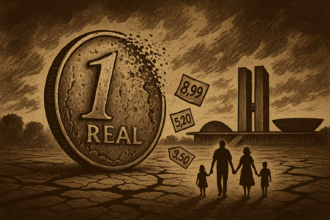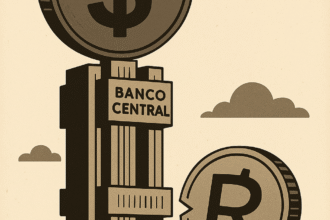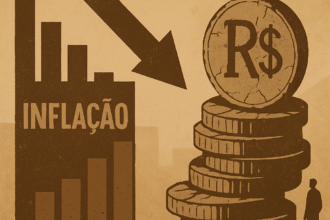“Everything increased.”
This is the most heard phrase on the streets, in bakeries, in supermarkets.
But what few realize is that this resignation is not just economic — it is moral.
Inflation has become part of everyday life as if it were a natural phenomenon. As if prices simply decided to rise of their own accord. As if French bread woke up with ambition. As if vegetables conspired against the purchasing power of the people. This naturalization of inflation is one of the greatest cultural victories of state interventionism.
With each new adjustment, indignation diminishes. And what comes into play is passive adaptation: Brazilians exchange meat for eggs, rice for pasta, bakery for flour. Instead of asking themselves why they are getting poorer, they only ask themselves what they can cut from their shopping cart. This logic of scarcity is not a flaw, it is a policy.
The government continues to increase spending, print money, nationalize sectors and create subsidies with money it doesn’t have. And who pays the bill? The worker who sees his basic food basket shrink while listening to speeches about “redistribution”. There is no redistribution in a country where the very value of money is being eroded.
Worse than inflation in your pocket is inflation in your conscience.
When people accept paying a high price and blame the market, they are living under a type of economic hypnosis. The real cause of poverty is not profit, it is the institutionalized theft of money.
Meanwhile, the same people who created the problem present themselves as saviors — with new aid, new programs, and new promises. The cycle repeats itself, and freedom is exchanged for increasingly expensive and increasingly smaller loaves of bread.
Inflation is a policy of impoverishment disguised as an economic fatality.
And the State is always the one who profits from this.





